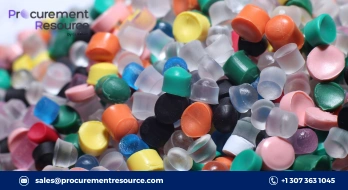Sabic And Tenjin Launched ISSC Certified Bio-based Polycarbonate And Bisphenol

The supplier based in Japan united with Saudi Arabia’s Sabic to supply bio-based polycarbonate in the electronics and automotive industries.
Teijin secured the certification of ISCC Plus from the International Sustainability and Carbon Certification (ISCC) system for producing polycarbonate (PC) resin in Japan using biomass-derived bisphenol A (BPA) feedstock. Teijin is the first Japan-based company to get the ISCC Plus certification for PC resin.
The recently approved biomass PC resin presents similar physical properties as resins composed of traditional petroleum-derived BPA, authorising them to be employed in industrial applications like automotive headlamps and electronic components.
Request Access For Regular Price Update of Polycarbonate
Starting January 30 of the current year, Teijin launched the production and marketing of biomass PC resin which contains BPA made from biomass naphtha, at the production sites Matsuyama and Mihara in Japan. As per the mass-balance approach method, materials are tracked verifiably via intricate value chains, as in the matter of raw materials derived from biomass that are combined with petroleum-derived raw materials to make final products.
With the advent of eco-friendly PC resin, Teijin established a fresh lineup of a product named Circular Materials (CM), and the latest PC resin products derived from biomass are now being encouraged under the brands Panlite CM and Multilon CM.
Panlite CM has availability in neat polymer, film, sheet, and compound form. Multilon CM is a PC/ABS-based polymer alloy of Teijin.
Recently, Sabic also debuted a bio-based PC copolymer which is already being used by the Chinese brand ‘Realme’ for its brand-new GT 2 Pro smartphone's battery. The Sabic grade LNP Elcrin EXL7414B copolymer resin is the first in an expanding portfolio to get an ISCC Plus certification. It is developed with more than 50% bio-based content derived from waste materials, which don't contend with the food chain, as per the mass balance approach.
Their partnership with Sabic for successfully integrating this latest bio-based copolymer in their GT 2 series smartphone has aided their goal to gain competitive differentiation as well as a stiffer sustainability posture, as per Global Vice President and Chief Marketing Officer at Realme, Chase Xu. The usage of bio-based materials is a vital selling point for customers who are readily seeking sustainable products.
According to the Director Growth OEM, Specialties, SABIC, Maureen MacDonald-Stein, the development of bio-based thermoplastics is a crucial component of the overall sustainability strategy at SABIC, which also encloses mechanical recycling and chemical upcycling.
They are using all of their company's technical and scientific resources for creating and delivering new materials that are able to support consumers like Realme to accomplish goals like reductions in emissions and energy, avoiding plastic waste, and regulatory compliance.
Along with the reductions in carbon footprint through lowering fossil-based feedstock usage, SABIC’s LNP ELCRIN EXL7414B copolymer resin offers outstanding performance for challenging electronics applications. It employs a non-chlorinated, non-brominated, flame-retardant formulation that satisfies the UL 94 V0 standard at 0.6 mm.
Read More About Polycarbonate Production Cost Reports - REQUEST FREE SAMPLE COPY IN PDF
Director, Business Management, LNP and NORYL, SABIC, Joshua Chiaw, added that their latest bio-based copolymers are especially advantageous to the consumer electronics market. They mix sustainability with superior performance in order to meet the standard for key trends for electronic devices, including thinner and smaller designs, very strict safety regulations as well as strong customer choices for products that are environmentally responsible.
LNP ELCRIN EXL7414 and new LNP ELCRIN EXL7414B copolymer resins both assist in addressing the latest IEC 62368-1, harmonized International Electrotechnical Commission’s standard, which changed the last IEC 60065 Audio Video and IEC 60950 IT Equipment standards with more stringent safety requirements.
For instance, this latest standard, which came into effect in December 2020, demands hazardous energy sources like lithium-ion batteries to be controlled through built-in safeguards to assist with preventing the energy from transmitting to the users of the device.
As per Procurement Resource, the article covers the recent news of Teijin and Sabic Marketing Biomass-Derived Polycarbonate And Bisphenol Certified by ISSC. Both suppliers collaborated to supply bio-based polycarbonate in the electronics and automotive industries.

